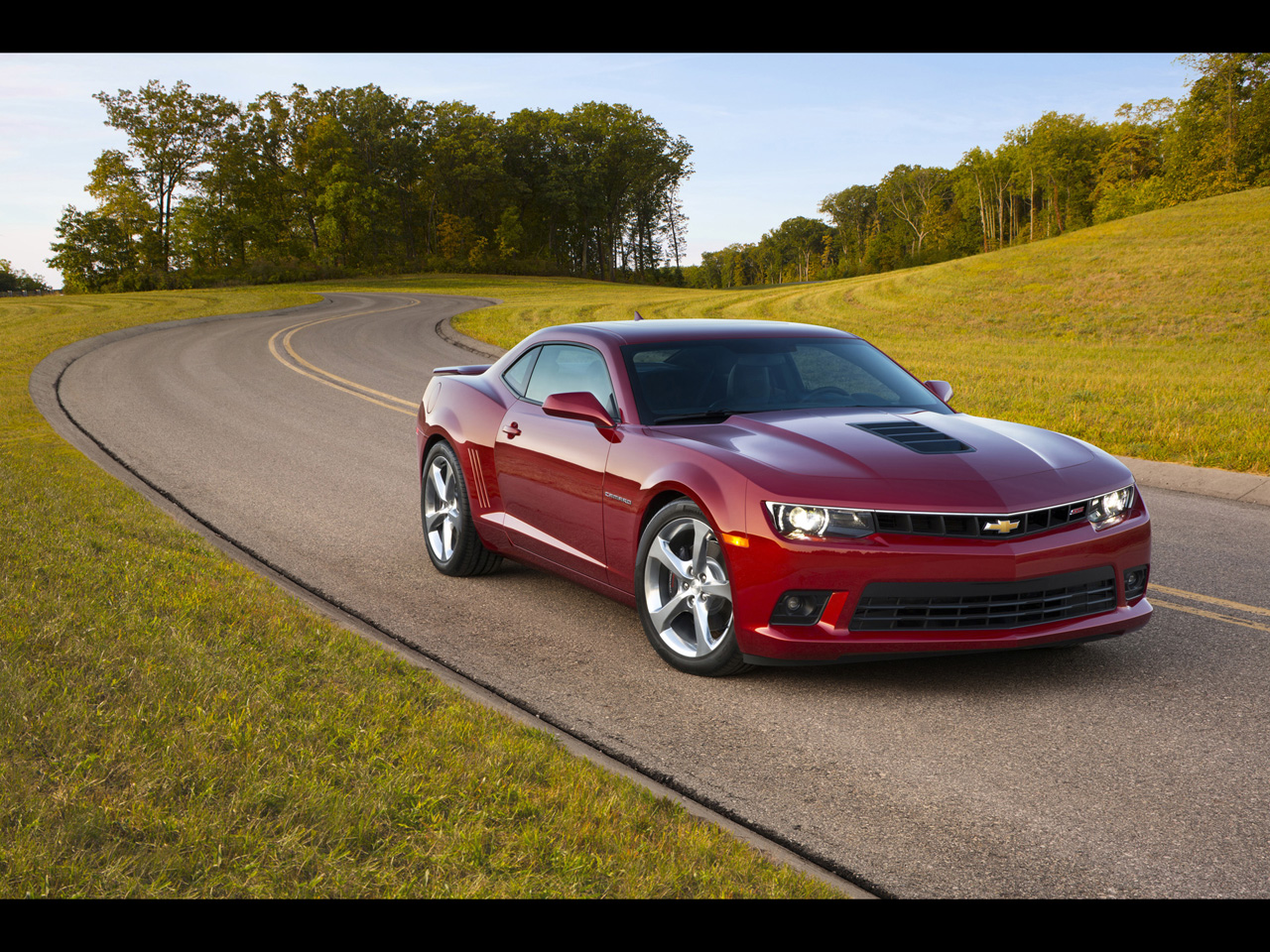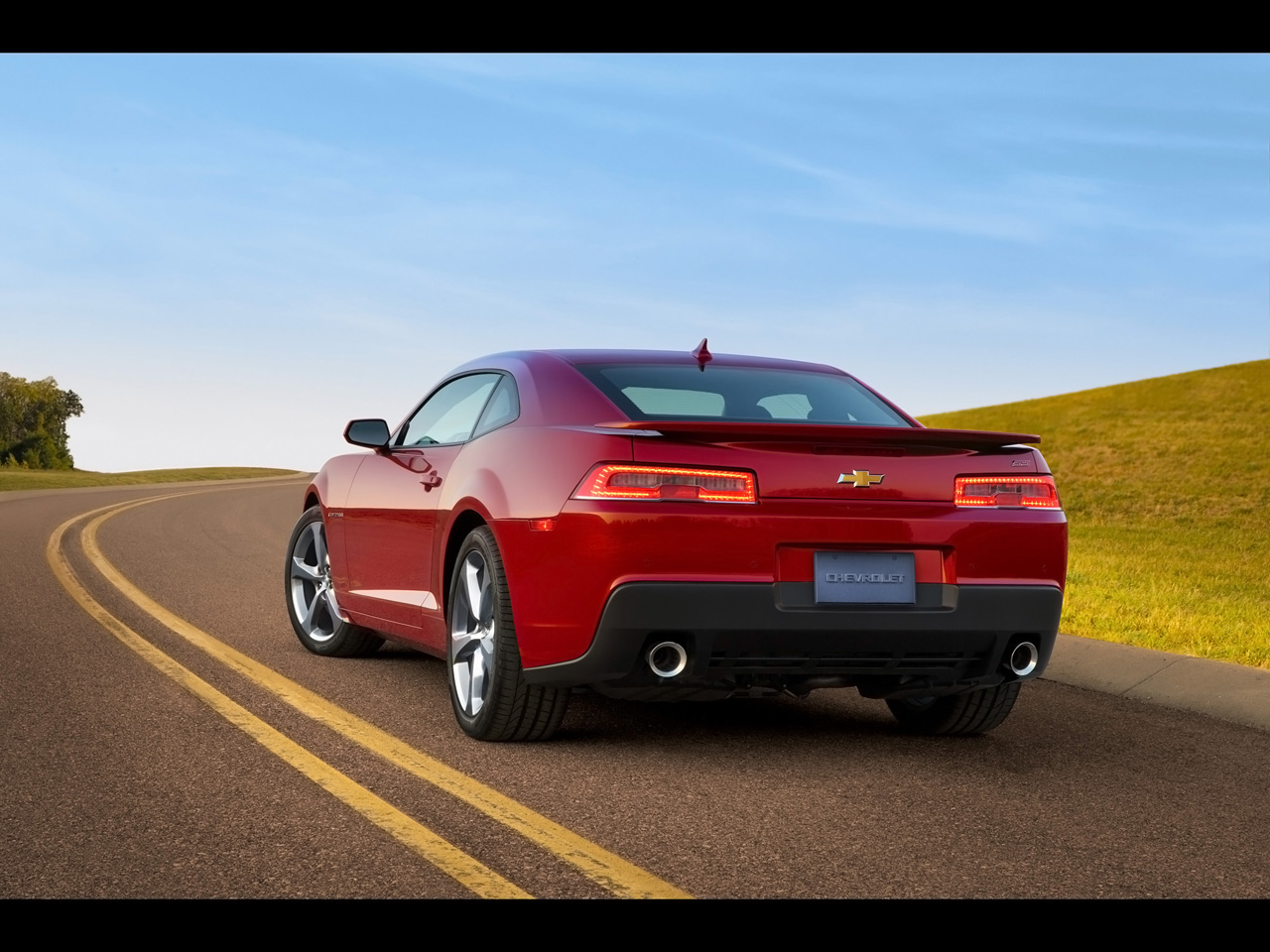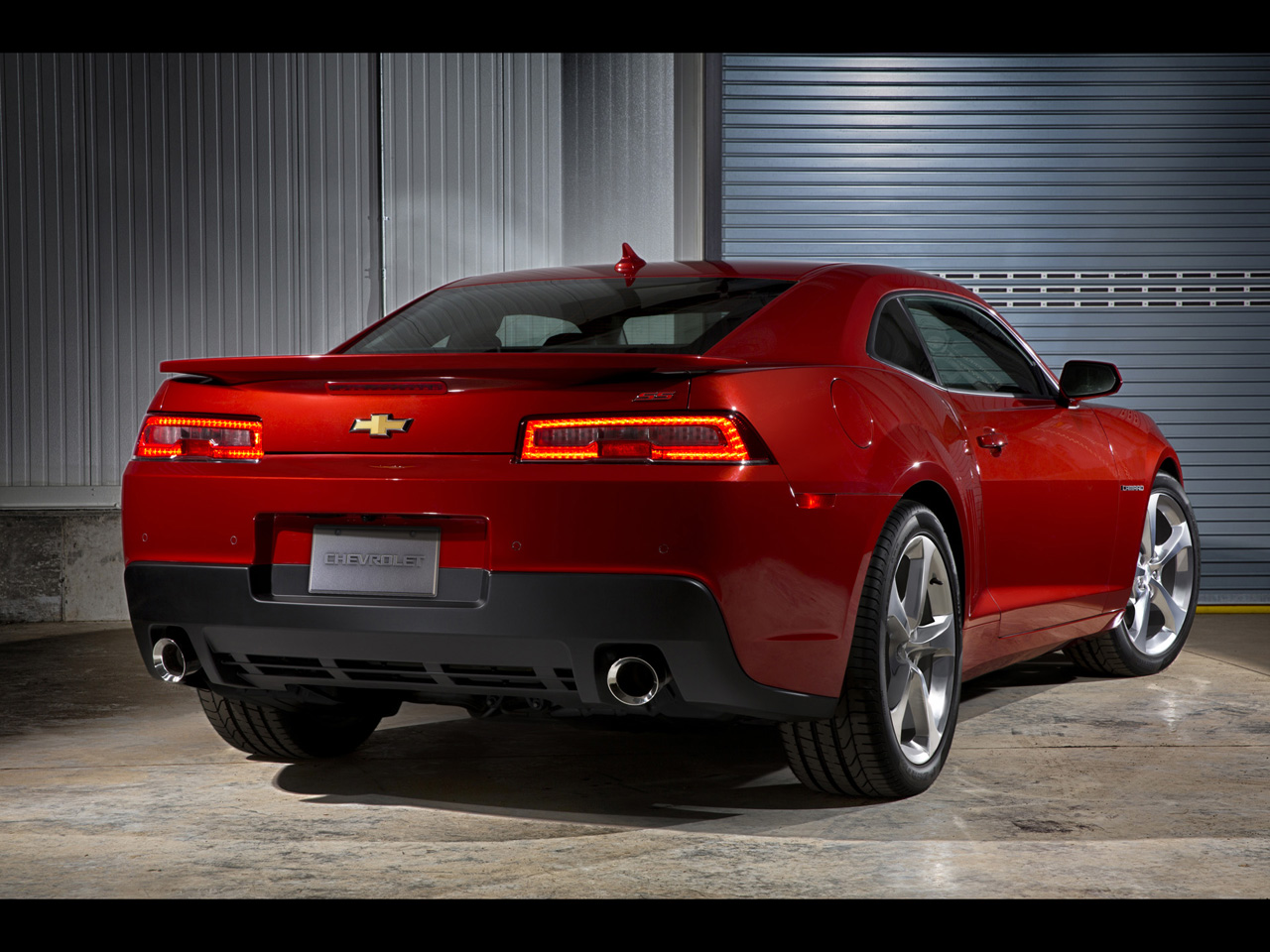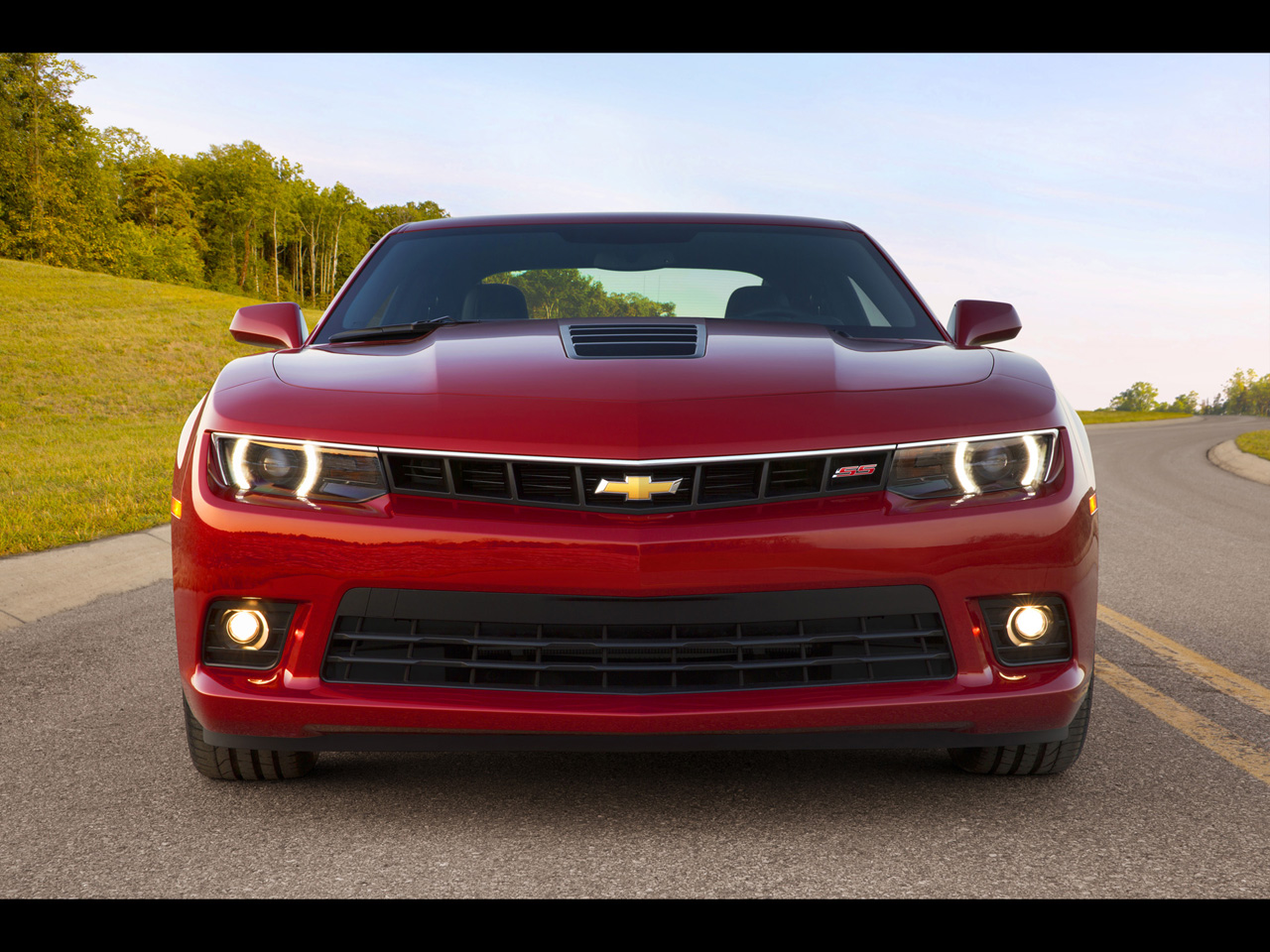2014 Chevrolet Camaro SS
|
Price |
-- |
Production |
-- | ||
|
Engine |
-- |
Weight |
-- | ||
|
Aspiration |
-- |
Torque |
-- | ||
|
HP |
-- |
HP/Weight |
-- | ||
|
HP/Liter |
-- |
1/4 mile |
-- | ||
|
0-62 mph |
-- |
Top Speed |
-- |
(from Chevrolet Press
Release) Chevrolet today introduced the restyled 2014
Camaro line at the New York Auto Show, including the return of the
Z/28, the most iconic model in Camaro history.
The 2014 Camaro models feature a revised exterior design that
integrates high-performance aerodynamics for more efficient cooling
and stability at high speeds. The new Camaro Z/28 also features a
full aerodynamics package that creates downforce at speed, which
helps make it the most track-capable offering in Camaro’s history.
“As the ultimate track-capable Camaro, this car restores the mission
of the original Z/28, and serves as a testament to the expertise of
Chevrolet as the best-selling brand of performance cars,” said Mark
Reuss, president, GM North America. “The build sheet is the wish
list of any racer: lightweight, high-revving, dry-sump LS7 engine;
carbon-ceramic brakes; integrated coolers for track use; true
aerodynamic downforce, and a significant reduction in curb weight.
This car could only come from Chevrolet, and could only be called
the Z/28.”
The first Camaro Z/28 was introduced in 1967, created to compete in
the Sports Car Club of America's Trans-Am 2 class. It featured a
smaller, lighter, 302-cubic-inch V-8 for improved weight balance, as
well as quick-ratio steering and a heavy-duty suspension for track
use. In keeping with its road-racing focus, the 1967 Camaro Z/28 was
not available with an automatic transmission or air conditioning.
While the new Camaro Z/28 is not intended to compete in a specific
race series, it is solely focused on track capability. In initial
testing, the Camaro Z/28 is three seconds faster per lap than the
Camaro ZL1. That extra speed comes from three areas:
Like the original, the
2014 Camaro Z/28 is offered only with a manual transmission. In a
nod to modern convenience, air-conditioning is available, but only
as an option.
"We set out to make the fastest road-racing Camaro possible that was
still street-legal,” said Al Oppenheiser, Camaro chief engineer.
“While the Camaro ZL1 offers exceptional performance on the street,
the drag strip, and the track, the Z/28 is entirely focused on the
track performance. The Z/28 will be too track-focused for most
drivers, but offers road-racers one of the most capable track cars
ever offered from an automaker.”
The new 2014 Camaro line will arrive at Chevrolet dealers later in
2013. The Camaro Z/28 is expected to be appearing at track events
across the United States in spring 2014.
High-performance aerodynamics highlight changes for 2014 Camaro
The 2014 Camaro
represents the most significant redesign since the introduction of
the fifth-generation Camaro as a concept car in 2006.
“The 2014 Camaro is our opportunity to apply what we have learned
listening to our customers, and our continuing development of
high-performance models,” said Tom Peters, Camaro exterior design
director. “We look for solutions that are both functional and
beautiful so that the result is genuine Chevrolet – simple,
powerful, honest, and more than expected.”
Compared to the previous model, the design represents a strong
visual change front and rear, resulting in a wider, lower, more
contemporary appearance. The front fascia features a wider lower
opening, and a narrower upper opening that also updates the
appearance of the iconic “halo ring” HID headlamps on the Camaro RS
package. The functional hood vent on the Camaro SS helps reduce heat
and aerodynamic lift. Moving to the rear, the sculptural decklid,
horizontal lamps and diffuser complete the powerful statement.
The Camaro Z/28 also features a full aerodynamic package designed to
produce downforce at track speeds. At the front, the Z/28 features a
large splitter, connected to an underbody panel that further reduces
lift. In profile, the Z/28 features fender flares over the front and
rear wheels, as well as extended rocker panels that contribute to
aerodynamic stability. An aggressive rear spoiler and functional
diffuser complete the aerodynamic package.
On the interior, the Camaro Z/28 features trim in a distinctive,
matte-metallic finish named Octane, the ZL1 flat-bottomed steering
wheel, and standard Recaro seats with microfiber suede inserts. The
new seats (also available on the coupe versions of the SS and ZL1
models), feature aggressive bolsters for high-performance driving,
as well as seat cutouts inspired by the five-point harnesses found
on racing seats. To save weight, both front seats incorporate manual
adjustment.
The rear seats of the Z/28 have also been modified for weight
reduction. A total of nine pounds (four kilograms) was saved by
eliminating the seat-back pass through, as well as using
high-density foam in place of the rigid structure of the seat back
and steel mesh of the seat bottom.
“Unlike the Ford Mustang Boss 302, we felt it was important to keep
the 2+2 configuration of the Camaro Z/28 as Chevrolet already has a
world-class two-seat sports car in the Corvette,” said Oppenheiser.
“By modifying the construction of the rear seat, we were able to
reduce the overall weight of the Z/28 while still preserving the
flexibility of 2+2 seating.”



